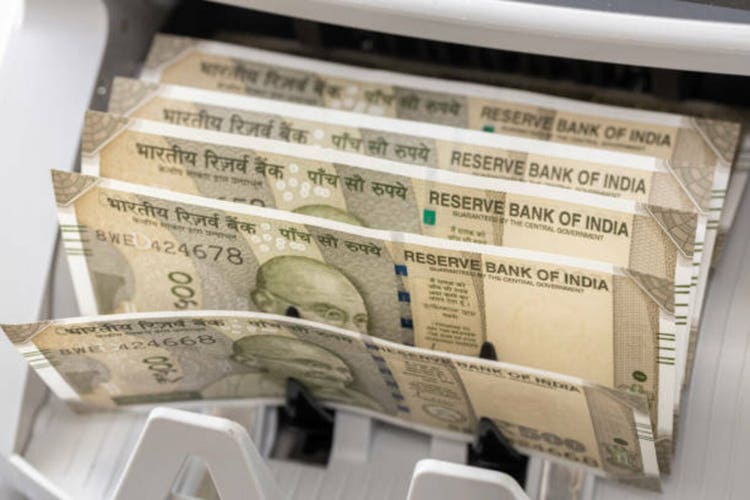Synopsis
SEBI proposed revisions to related party transaction (RPT) rules, easing compliance for listed firms. The regulator suggested turnover-based thresholds to determine 'material' RPTs requiring shareholder approval, replacing the current ₹1,000 crore or 10% of turnover limit. This aims to address the 'one-size-fits-all' approach, especially for high-turnover companies.
 Getty ImagesCurrently, an RPT is treated as material if it exceeds ₹1,000 crore, or 10% of a company's annual consolidated turnover, whichever is lower.
Getty ImagesCurrently, an RPT is treated as material if it exceeds ₹1,000 crore, or 10% of a company's annual consolidated turnover, whichever is lower.Mumbai: India's capital markets regulator Monday proposed turnover-based changes to the rules governing related party transactions (RPTs), or deals between a listed firm and a linked entity such as the promoters, to ease compliance requirements for such companies.
In a consultation paper published Monday, the Securities and Exchange Board of India (Sebi) recommended creating turnover-based buckets to revise the thresholds that would determine when an RPT is considered 'material' and requires shareholder approval.
Materiality threshold is the cut-off value that determines whether an RPT is large enough for the management of a listed entity to seek the approval of the company's shareholders. This is done to protect the interests of public shareholders from unfair dealings by the promoters or group companies related to the promoters.
Sebi's proposed rules link the materiality threshold to the size of the company.
Companies with turnovers up to ₹20,000 crore need to treat an RPT as material only if the transaction in question is more than 10% of the annual turnover of the listed entity.
For companies with turnovers between ₹20,001 crore and ₹40,000 crore, the threshold will be ₹2,000 crore plus 5% of the amount above ₹20,000 crore. For listed entities with turnovers above ₹40,000 crore, the threshold would be ₹3,000 crore plus 2.5% of the amount above ₹40,000 crore, or ₹5,000 crore, whichever is lower.
Currently, an RPT is treated as material if it exceeds ₹1,000 crore, or 10% of a company's annual consolidated turnover, whichever is lower.
 Agencies
AgenciesNo One-Size-Fits-All
"The provision requiring shareholder approval for RPTs exceeding Rs 1,000 crore or 10% of consolidated turnover of the listed entity, whichever is lower, becomes onerous for listed entities with high turnovers," said the discussion paper seeking public comments. "The absolute materiality threshold of Rs 1,000 crore propagates a 'one-size-fits-all' approach as listed entities are treated alike, irrespective of their turnover, scale of operations and nature of business."
Sebi has also proposed tightening checks on RPTs done by subsidiaries of listed companies. It has recommended an RPT by a subsidiary worth over Rs 1 crore get prior approval from the listed company's audit committee if the value of the transaction crosses certain limits.
(What's moving Sensex and Nifty Track latest market news, stock tips, Budget 2025, Share Market on Budget 2025 and expert advice, on ETMarkets. Also, ETMarkets.com is now on Telegram. For fastest news alerts on financial markets, investment strategies and stocks alerts, subscribe to our Telegram feeds .)
Subscribe to ET Prime and read the Economic Times ePaper Online.and Sensex Today.
Top Trending Stocks: SBI Share Price, Axis Bank Share Price, HDFC Bank Share Price, Infosys Share Price, Wipro Share Price, NTPC Share Price
...moreless
(You can now subscribe to our ETMarkets WhatsApp channel)
(What's moving Sensex and Nifty Track latest market news, stock tips, Budget 2025, Share Market on Budget 2025 and expert advice, on ETMarkets. Also, ETMarkets.com is now on Telegram. For fastest news alerts on financial markets, investment strategies and stocks alerts, subscribe to our Telegram feeds .)
Subscribe to ET Prime and read the Economic Times ePaper Online.and Sensex Today.
Top Trending Stocks: SBI Share Price, Axis Bank Share Price, HDFC Bank Share Price, Infosys Share Price, Wipro Share Price, NTPC Share Price
...moreless
.png)
 9 hours ago
1
9 hours ago
1







 English (US) ·
English (US) ·